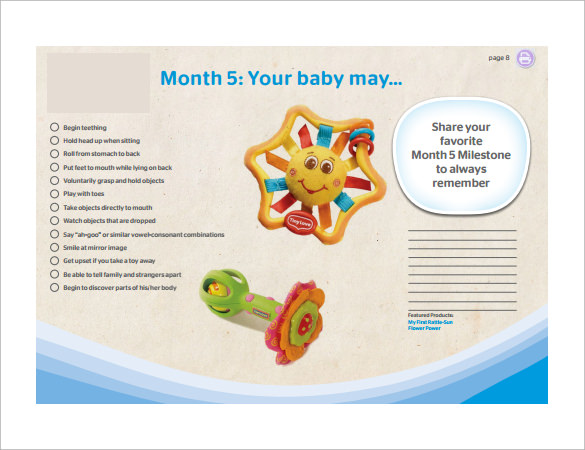 Source: bing.com
Source: bing.comTable of Contents
Introduction
Congratulations on reaching the 5th month with your baby! This is an exciting time as your little one is growing and developing rapidly. You may notice new milestones and changes in their behavior, which is why we have prepared this 5-month-old baby development chart to help you understand what to expect.
Physical Development
At this age, your baby’s physical development is progressing rapidly. They may be able to sit up with support and roll over from their stomach to their back. Some babies may even be able to crawl, although this is less common. You may notice that your baby is starting to reach for objects and grasp them with their hands. They may also be able to hold their bottle or a toy.
Cognitive Development
Your baby’s cognitive development is also advancing at this age. They may start to recognize familiar faces and voices and turn towards them when they are heard. You may also notice that your baby is becoming more curious about the world around them, and they may start to explore objects with their mouth.
Language Development
While your baby is not yet speaking, they are still developing their language skills. At this age, they may start to babble and make more sounds. They may also respond to your voice by cooing or making noises back to you. Reading books and talking to your baby can help encourage their language development.
Social Development
Your baby’s social development is also important at this age. They may start to develop a stronger attachment to you and may become upset when you leave the room. They may also be more interested in social interaction, such as playing peek-a-boo or other games with you.
Sleep
Your baby’s sleep patterns may start to change at this age. They may start sleeping for longer stretches at night, although they may still wake up for feedings. You may also notice that they are taking shorter naps during the day.
Frequently Asked Questions
What should my 5-month-old be eating?
At this age, your baby may be starting to eat solid foods in addition to breast milk or formula. Pureed fruits, vegetables, and grains are good options for introducing solids. Talk to your pediatrician about a feeding plan that is right for your baby.
When should my 5-month-old start crawling?
While some babies may start crawling at 5 months, it is more common for them to start between 6-10 months. However, every baby develops at their own pace, so don’t worry if your baby is not crawling yet.
How much should my 5-month-old be sleeping?
Most 5-month-olds need around 14-15 hours of sleep per day, including naps and nighttime sleep.
When should my 5-month-old start talking?
While your baby may start making more sounds and babbling at 5 months, it may be several months before they start saying their first words. Reading books and talking to your baby can help encourage their language development.
What should I do if I am concerned about my baby’s development?
If you have concerns about your baby’s development, talk to your pediatrician. They can evaluate your baby’s progress and provide guidance on any concerns you may have.In conclusion, the 5-month-old baby development chart shows the various changes and milestones that your little one will be going through. Remember that every baby develops at their own pace and there is no need to worry if your baby is not meeting every milestone exactly as listed. Enjoy this special time with your little one and don’t hesitate to reach out to your pediatrician if you have any concerns.
